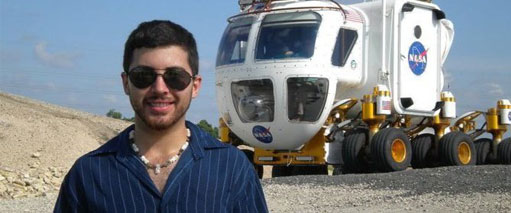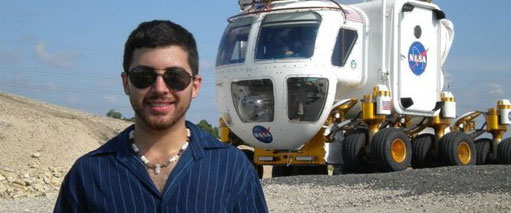Martian Dreams: Mars One Finalist Zachary Gallegos Talks Life And Death On An Angry Red Planet
Mars One Finalist Zachary Gallegos Talks Life And Death On An Angry Red Planet


Mars One finalist Zachary Gallegos
Courtesy of Zachary Gallegos



